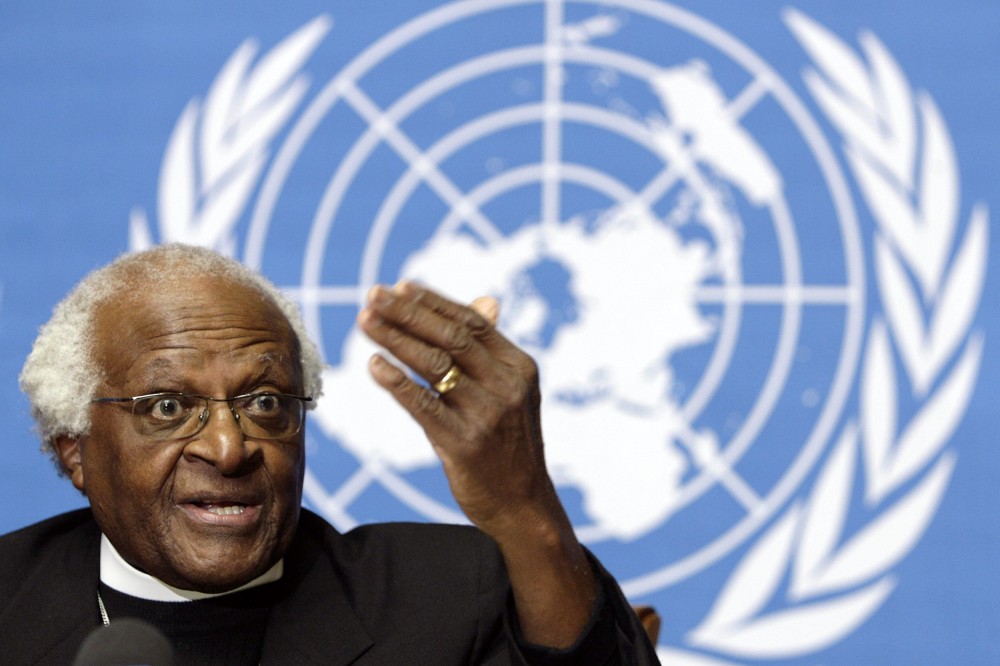Desmond Tutu dies at 90

Desmond Tutu, South Africa’s Nobel Peace Prize–winning icon, an uncompromising foe of apartheid, and a modern-day activist for racial justice and LGBTQ rights, died December 26, 2021, at 90 (see remembrance, p. 10).
Tutu died peacefully at the Oasis Frail Care Center in Cape Town, according to his trust. He had been hospitalized several times since 2015 after being diagnosed with prostate cancer in 1997.
Tutu worked passionately, tirelessly, and nonviolently to tear down apartheid—South Africa’s brutal, decades-long regime of oppression against its Black majority that ended in 1994.
The buoyant, blunt-spoken clergyman used his pulpit as the first Black bishop of Johannesburg and later as the Anglican archbishop of Cape Town, as well as frequent public demonstrations, to galvanize public opinion against racial inequity, both at home and globally.
Nicknamed “the Arch,” the diminutive Tutu became a towering figure in his nation’s history.
Throughout the 1980s—when South Africa was gripped by antiapartheid violence and a state of emergency gave police and the military sweeping powers—Tutu was one of the most prominent Black leaders able to speak out against abuses.
A lively wit lightened Tutu’s hard-hitting messages and warmed otherwise grim protests, funerals, and marches. Plucky and tenacious, he was a formidable force with a canny talent for quoting apt scriptures to harness support for change.
Tutu also campaigned internationally for human rights, especially LGBTQ rights.
“I would not worship a God who is homophobic,” he said in 2013. “I would refuse to go to a homophobic heaven. No, I would say, ‘Sorry, I would much rather go to the other place.’”
Tutu’s life was “entirely dedicated to serving his brothers and sisters for the greater common good. He was a true humanitarian,” the Dalai Lama said following Tutu’s death.
Tutu was ordained to the priesthood in 1961 and six years later became chaplain at the University of Fort Hare. He went on to become bishop of Lesotho, chairman of the South African Conference of Churches, and, in 1985, the first Black Anglican bishop of Johannesburg. In 1986, Tutu was named the first Black archbishop of Cape Town.
As head of South Africa’s Truth and Reconciliation Commission, Tutu and his panel listened to harrowing testimony about torture, killing, and other atrocities during apartheid. At some hearings, Tutu wept openly.
Asked once how he wanted to be remembered, Tutu said: “He loved. He laughed. He cried. He was forgiven. He forgave. Greatly privileged.” —Associated Press




